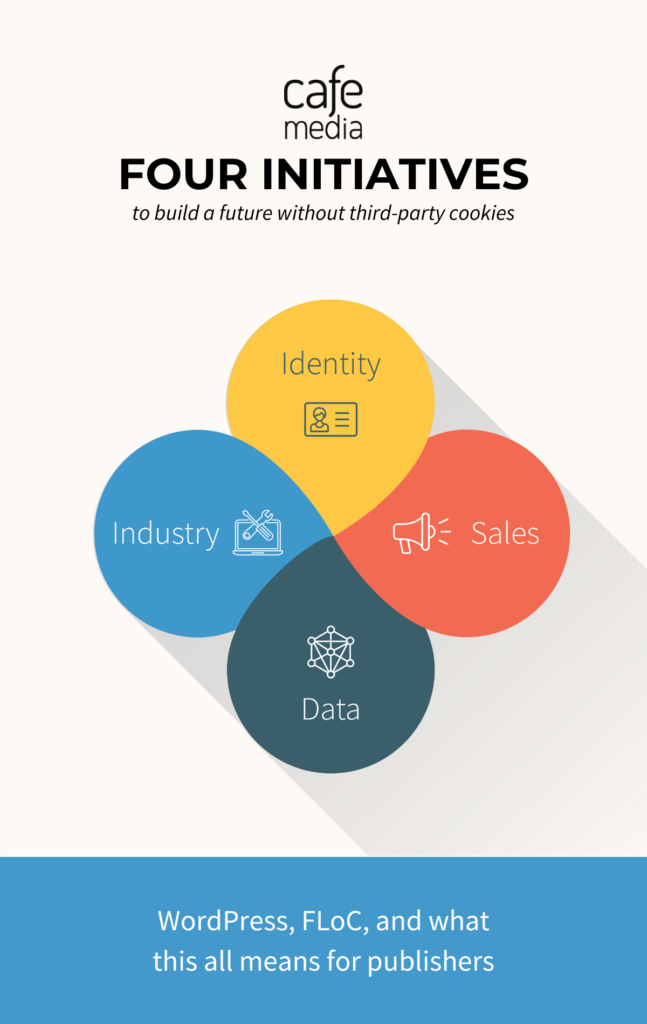WordPress, FLoC, and what this all means for publishers
“WordPress blocks FLoC!” As Google’s FLoC (a key proposal in the Privacy Sandbox) moves into real-world trials, sensational headlines like this are floating around the internet in reaction. That’s not the case — yet. Instead, on April 18, a WordPress...

“WordPress blocks FLoC!”
As Google’s FLoC (a key proposal in the Privacy Sandbox) moves into real-world trials, sensational headlines like this are floating around the internet in reaction.
That’s not the case — yet.
Instead, on April 18, a WordPress contributor put forth a proposal for WordPress to disable FLoC by default for discussion with the WordPress community and developers.
With broad support from WordPress developers, a proposal can move into an upcoming WordPress release. “Backporting”, or extending this block to previous versions of WordPress as well as future versions, was also hotly debated.
The proposal moved into deeper discussions in the weekly WordPress Dev Chat on April 21, and we joined to represent independent publishers and break down all the latest developments for you.

5 key takeaways
- As Google’s FLoC moves into real-world testing, it’s generating a lot of buzz and reactions, including a proposal for WordPress to natively block FLoC by default based on concerns that FLoC may enable discriminatory practices.
- We joined in the discussion to voice the perspective of independent publishers who rely on advertising revenue to keep the internet full of high-quality, free content.
- The Chrome team joined the WordPress Core team’s weekly Slack discussion to address questions and concerns.
- For now, WordPress is not moving forward with blocking FLoC.
- We’re monitoring things closely, are actively involved in FLoC trials and discussion, and we will keep you informed!
What is FLoC, again?
FLoC stands for “Federated Learning of Cohorts”, Google’s proposal to use advanced machine learning technology to solve the problem of prospecting without third-party cookies. In plain English: how advertisers reach new audiences who are likely to be interested in their ads.
FLoC uses an individual’s browsing habits to group them with other web users with similar interests as cohorts that advertisers can use to target ads.
These anonymous cohorts hide individual data from ad technology. Instead of knowing “Individual A is interested in soccer, healthy eating, and sports cars”, FLoC would put that person into a cohort of many people with similar interests who aren’t individually identified.
Why might WordPress block FLoC?
Over the last few weeks, lots of interest, conversation, and speculation has centered on FLoC, with several companies moving quickly to block FLoC outright.
In addition to objecting to the inherent browser tracking in FLoC, the WordPress proposal also expresses concern that FLoC could create cohorts that enable discriminatory practices around things like income, race, or sexuality.
Arguing that the website owners who truly care to participate in FLoC will have the technical know-how to re-enable FLoC for their site, the proposal wants to disable FLoC by default for all websites running WordPress.
CafeMedia’s response to the proposal
The proposal on the Make WordPress Core blog drew broad engagement this week, with 147 comments covering many viewpoints.
We joined in, sharing concerns from the independent publisher point of view, and explaining more about how advertising works today, including the predicted revenue impact of the end of third-party cookies if no viable alternatives are in place.
FLoC works based on collective participation
When third-party cookies are turned off in Chrome, if they are not replaced by equivalent technologies (like FLoC and other parts of Google’s Privacy Sandbox), advertising will suffer on the open web, and independent publishers will be harmed. The money they lose will flow to the “walled gardens” like Google (google.com, YouTube, etc.), Facebook, and others.
For FLoC to work, it will ultimately require data from sites that opt in because they are ad-supported and from sites that opt in because they want to understand the effectiveness of their advertising.
For the purposes of Google’s testing right now, where FLoC is not currently being used for ad targeting, a wide variety of sites participating will provide much better data on its real-world viability.
FLoC is in flux but addresses some privacy concerns
We are also participating in the W3C discussions on FLoC, along with many other proposals, to lend our voice and expertise in keeping the web open for independent publishers and building a privacy-centric future for digital advertising.
Our VP of Ecosystem Innovation, Don Marti, has literally authored some of the issues that call out potential discrimination within the W3C processes so we can work with Google to fix them.
It remains to be seen if FLoC cohorts will be specific enough to be useful to advertisers, but at the same time, not reveal enough information to be a discrimination concern for users. It’s admittedly tricky because the same cohort shows up on all sites that check it — and someone might, for example, be willing to reveal their gender and size on a fashion site but not on a job listings site.
The version of FLoC being tested now has a fairly good (if not fully transparent) rule that it only calculates cohorts from sites that run “ad-related resources”. This covers most publishers who make money via ads, and sites running ad-related code to understand users on their own properties.
By default this means that many sites that have sensitive information already would be “opted out”, and sites that are likely to participate in FLoC in the future are “opted in.”
Chrome’s response to the proposal
On April 21, the Chrome development team behind FLoC joined the WordPress Core team in the weekly WordPress Dev Chat on Slack to address concerns. Of course, we were there also, ready to speak up for ad-supported independent publishers, if necessary.
WordPress makes this ongoing Wednesday meeting open to anyone who would like to participate, so a lot of people showed up for this one, including developers who work on both ad-supported and non-ad-supported sites.
The Chrome team answered many questions, like which sites will be used to determine which FLoC cohort people end up in, and if a WordPress developer sets up a site on a sensitive topic, or for a vulnerable set of people, if Chrome will collect data there.
Michael Kleber from Google answered, “In the final end state, we expect the way FLoC will work is that the only pages that will be relevant to calculating your cohort are the pages that call the FLoC API.”
So what’s next?
Right now, it seems like WordPress developers are comfortable with this reciprocal approach, which we have already been discussing with the Chrome team.
Lead WordPress Developer Helen Hou-Sandi posted an update on the main proposal thread to confirm that for now WordPress won’t be taking any action but is monitoring the situation and discussing next steps in their bug tracker.
We’re involved and will keep publishers informed
We’re participating in the FLoC origin trial right now to provide feedback and understand potential benefits for publishers and any potential issues.
Although it appears the WordPress team is not planning to block FLoC at this time, there are some outstanding concerns. We’re involved in the WordPress FLoC discussion and we’ll continue to participate in other relevant meetings and forums.
If this were to become part of WordPress, website owners would have a choice within WordPress to allow FLoC or not, so we wouldn’t need to build anything new for publishers. We’ll keep you informed on your options for your ad revenue every step of the way!
